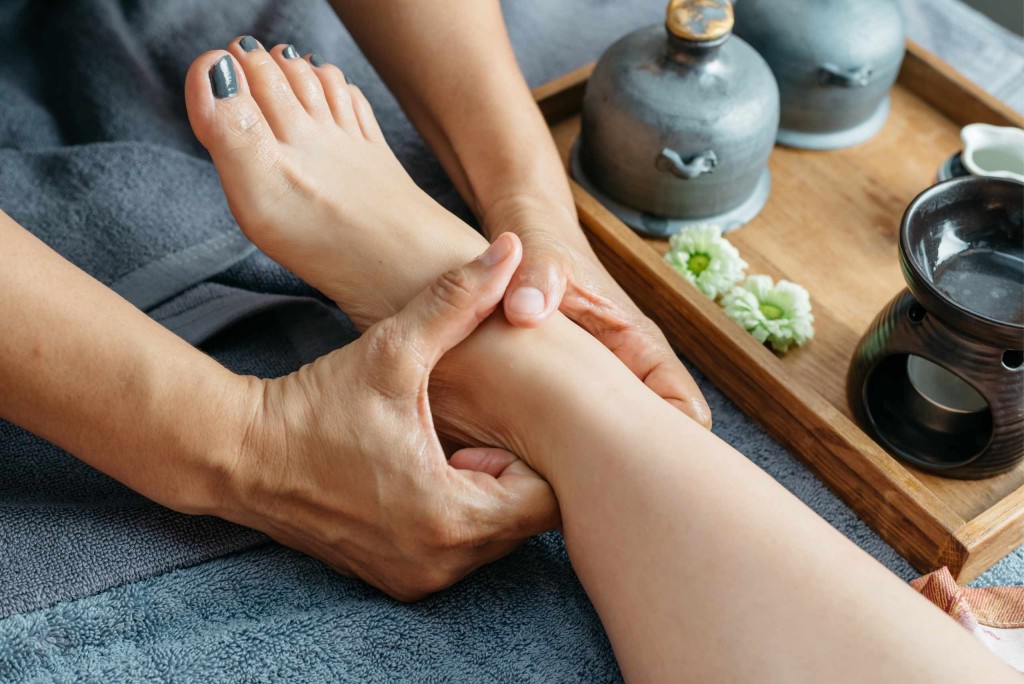
Reflexology for Better Sleep: How to Improve Your Night’s Rest
Do you find it hard to drift off to sleep? Wake up in the early hours of the morning, or feel groggy despite a full eight hours in bed? Sleep struggles are a common issue we treat at ABWR. Life is busy, our minds are overstimulated, and stress has a habit of creeping in the moment our heads hit the pillow, so it's no surprise how common sleep troubles are.
Some good news, though, is that reflexology can be a powerful and natural tool for better sleep. And when we say better, we mean deeper, more restorative, and more consistent, so you wake up actually feeling refreshed. In this blog, we'll look at why reflexology works so well to support sleep and how it could be the missing piece for you in getting a good night's rest.
Why is sleep such an issue?
Ever notice how it's easy to become stuck in the “always-on” mode? Your body may be tired, but your nervous system is often still on high alert... scrolling, worrying, to-do-listing. A good night’s sleep depends on your ability to fully switch off and into the parasympathetic nervous system. This is often called your "rest and digest" state. But when you’re stressed, anxious, or overwhelmed, your body may struggle to make that switch. This is where reflexology really shines.
How reflexology supports better sleep
Reflexology is a deeply relaxing therapy that involves stimulating specific pressure points on the feet (and sometimes hands or ears) that correspond to different organs and systems in the body. It’s like a gentle, full-body reset, calming your nervous system and encouraging the body to return to a state of balance. Here’s how reflexology can support your sleep:
- Calms the nervous system
- Regulates hormones
- Reduces stress and anxiety
- Supports the digestive system
Specific reflexology points for sleep
During your treatment, we’ll work on several key areas to support rest and relaxation, including:
- Pituitary gland point – helps regulate your body’s sleep-wake cycle.
- Solar plexus point – the stress-busting point that promotes deep calm.
- Spine reflex – connected to your nervous system, supporting full-body relaxation.
"I felt amazing afterwards and had a great night's sleep"
— Fiona
We hear stories like this every day at ABWR. Reflexology doesn’t just help you sleep better, it helps you feel better.
Reflexology for insomnia and long-term sleep issues
If you’ve been struggling with sleep for a while, reflexology can offer gentle, ongoing support. It’s safe, non-invasive, and complements other therapies or medical treatments you might be having. It’s especially helpful for those experiencing sleep issues related to:
- Anxiety and stress
- Hormonal imbalances (including perimenopause and menopause)
- Chronic pain or fatigue
- Overactive mind/difficulty winding down
- Shift work or irregular sleep schedules
Want to try reflexology for sleep?
If your nights are restless and your mornings feel heavy, it might be time to give your body the rest it’s craving and try reflexology as a potential solution. At ABWR, our reflexology treatments are tailored to your body’s unique needs. We’re here to help you feel relaxed, supported, and ready to sleep well again. You’ll find us in the beautiful Chapelton, Aberdeenshire, where our cosy clinic will help you drift off with ease. Book your appointment here and join our mailing list for 10% off your first treatment.